Countertop Materials
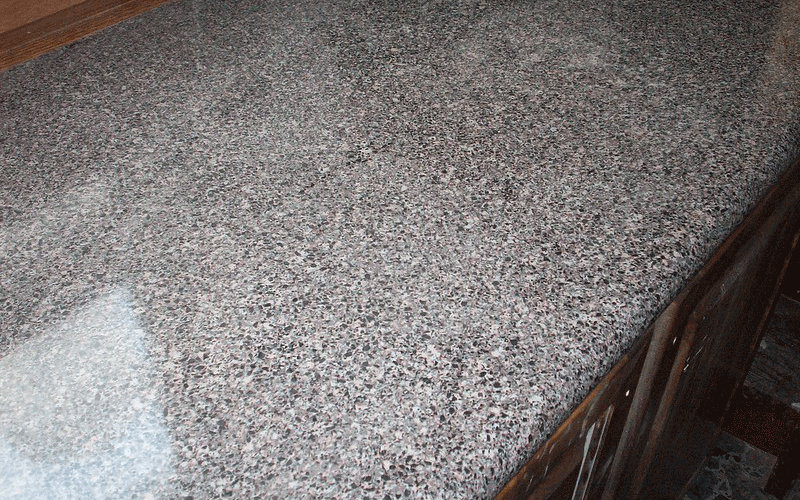
Everyone knows that kitchens are the heart of a home. Therefore, it is important to make this area comfortable and aesthetically pleasing. Choosing a new countertop material is an integral part of this. After all, the countertop is what you are going to touch and use to prepare food daily. Some kitchen countertop materials that will look wonderful in your kitchen are granite, quartz, wood laminate, concrete, marble, and soapstone. Each material has its own pros and cons, so it’s important to research each one carefully before making your final decision.
There are many choices available when deciding on what material for your new countertops should be installed in your kitchen:
Marble
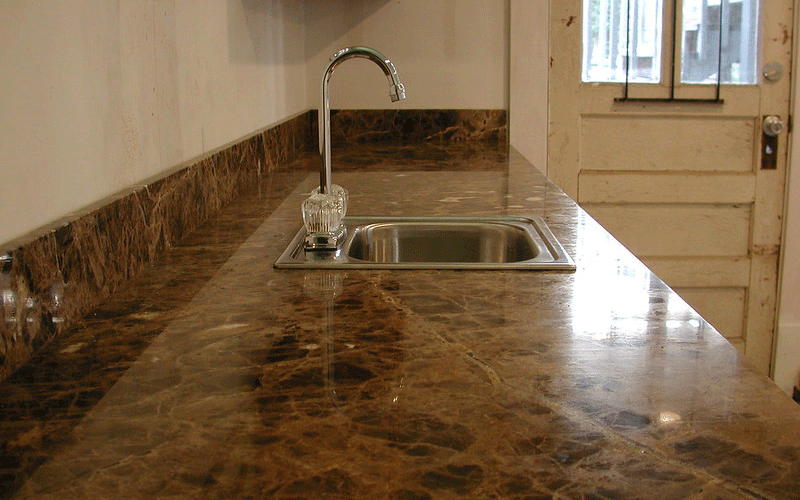
Marble countertops are timeless, elegant, and incredibly luxurious. The varied veins and density of natural stone give marble kitchen countertops a rustic look that can be unique and different from other stones. Due to the stone’s porous nature (which makes it susceptible to stains), these countertops require regular maintenance to ensure they always shine like new. The cost for marble countertops depends significantly on the quality of stone, thickness, and size.
- Cost: $$$$
Pros of Marble:
- elegant and luxurious
- timeless
Cons of Marble:
- porous, which makes them susceptible to stains that require regular maintenance to remove
Quartz
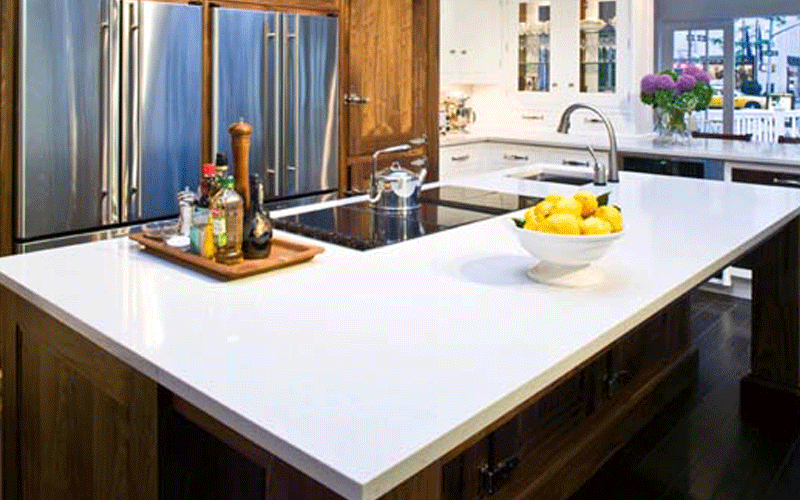
Quartz is a manufactured stone; therefore, it has none of the disadvantages of marble, such as porosity. A quartz countertop will maintain its luster for many years with little care necessary. The glass content of quartz allows it to be incredibly low-maintenance while still giving off the elegance and luxury modern homeowners are looking for. Quartz countertops come in various finishes allowing you to choose one that fits your style perfectly! These days, you can even get them in stunning patterns or polished concrete looks if you want something different than a solid color.
Cost: $$$$
Pros of Quartz:
- extremely low maintenance and durable
- comes in various patterns for a unique look
Cons of Quartz:
- manufactured, therefore not as luxurious or timeless as natural stone countertops like marble or soapstone
Soapstone
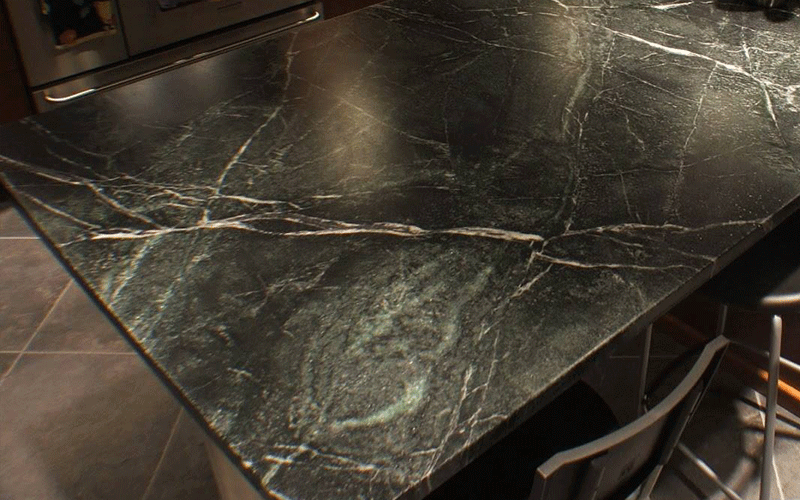
Soapstone is another excellent alternative to more expensive stones such as granite and marble. It is relatively soft and porous like marble; however, the porosity does not make it susceptible to stains like marble can be. Natural soapstone needs no polishing because it develops a layer from cooking oils that protects it from damage over time, just like any other high-quality stone. Of course, some extra precautions must be taken when cleaning.
Cost: $$
Pros of Soapstone:
- natural stone with no need for polishing
- develops a layer that makes it resistant to damage and stains over time, just like granite does.
Cons of Soapstone:
- relatively soft and porous material, so extra care must be taken when cleaning to avoid scratches and other damage.
Granite
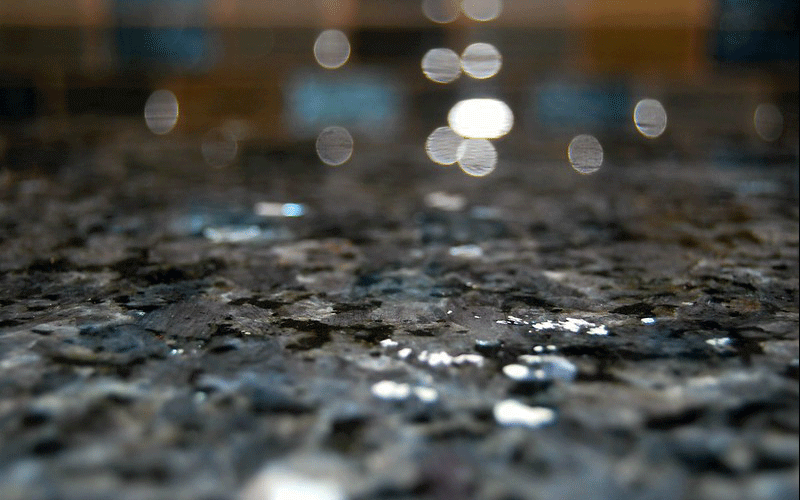
Granite is one of the most popular countertop materials on the market today. It has a glossy surface and beautiful color variation throughout each piece, allowing homeowners to choose an appealing color and see variations in color depending on where they place the countertops in their kitchen. The durability and stain resistance of granite makes it incredibly easy to maintain. Although prices for granite countertops vary greatly depending on quality, the durability of natural stone makes it an excellent investment that will stand the test of time.
Cost: $$$$
Pros of Granite:
durable and stain-resistant material
comes in various colors with a unique vein structure that gives each piece character
Cons of Granite:
- potential to chip if not installed correctly or if any heavy objects are dropped on it
- extremely heavy material can be difficult to install
- materials can be expensive
Solid-surface Material
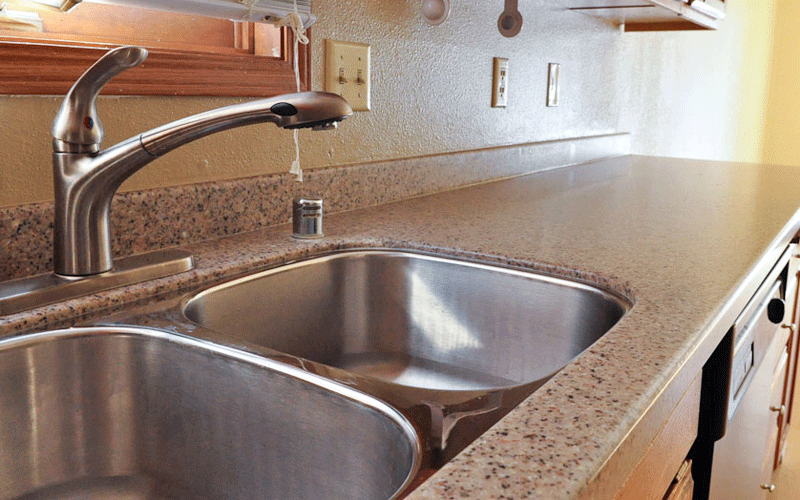
Solid-surface material is another great alternative to more expensive materials like granite and marble. The affordable solid-surface kitchen countertop options come in a variety of colors, patterns, and textures that allow homeowners to select an appealing combination for their kitchen remodel project. Solid-surface material is made up of multiple layers that provide the durability needed for kitchens with high traffic while still looking incredibly sleek and modern.
Cost: $
Pros of Solid Surfaces:
- low maintenance
- long-lasting material with minimal damage over time due to its multi-layer build
Cons of Solid Surfaces:
- some products can be easily scratched or stained without proper care (similarly to granite)
- can be damaged by hot cookware
- must be professionally installed
Laminate
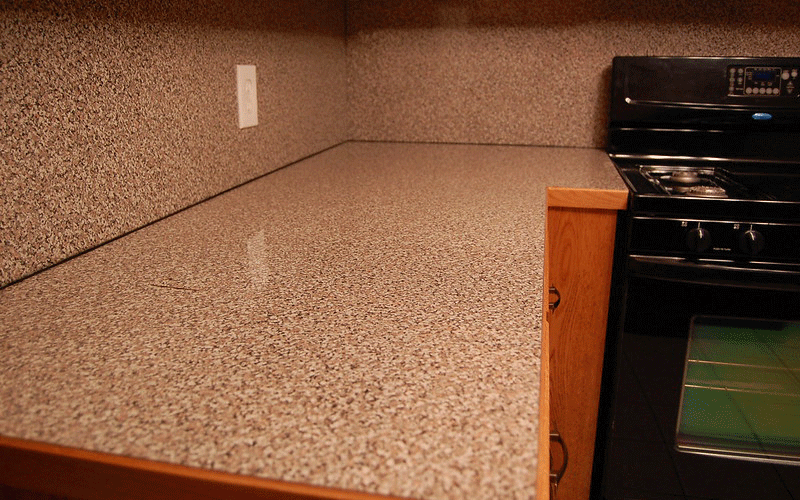
Laminate is an inexpensive, low-maintenance countertop material made from multiple printed layers that give the product a similar appearance to solid surface or granite. The top layer is made of durable plastic that resists heat and scratches while giving the laminate enough durability to be used in kitchens with high traffic or those where hot cookware is frequently placed on the countertops.
Cost: $
Pros of Laminate:
- does not come in as many colors or patterns as other countertop materials
- can be difficult to clean due to its smooth, shiny surface
Cons of Laminate:
- some products can be easily scratched or stained without proper care (similarly to granite)
- can be damaged by hot cookware
- must be professionally installed
Concrete
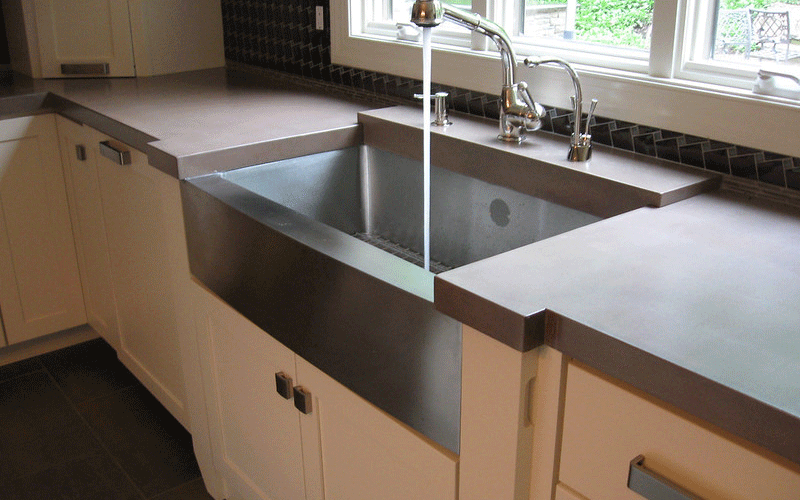
Concrete has become increasingly popular in recent years because it is a versatile material that can be used for an array of home remodeling projects. This naturally durable material is perfect for kitchen countertops because it resists stains and heat while standing up well, even with frequent use. The cost of concrete countertops varies depending on the type of installation desired by the homeowner. However, many options are available for homeowners who want an affordable option that still looks sleek and modern. There are some risks associated with using concrete in kitchens since the material holds moisture very effectively, which some people find off-putting after cooking food on their counters.
- Cost: $-$$$$
Pros of Concrete:
- affordable alternative to stone or other materials on the market today
Cons of Concrete:
- must be sealed before use to prevent staining and damage (can increase cost)
Tile
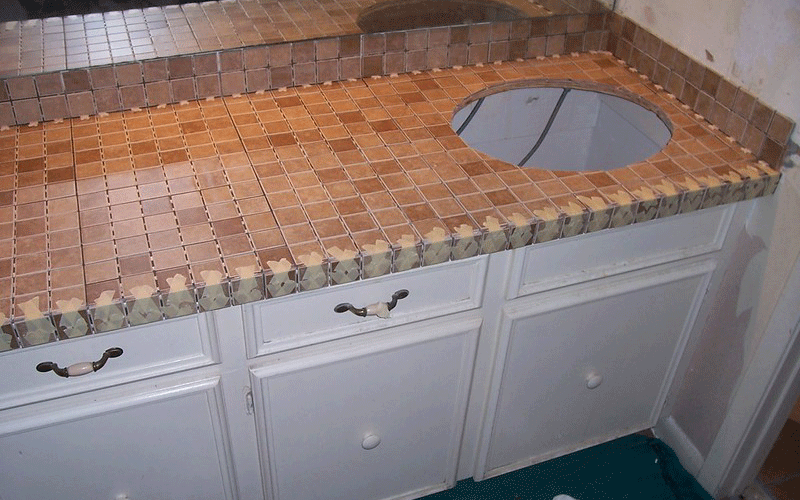
Tile, like concrete, has become increasingly popular for kitchen countertops because it is available in various colors and patterns with low maintenance costs. Another benefit of tile is its ability to withstand heat without damaging the material or leaving marks on it. The downside to using tile as a kitchen countertop is that it requires professional installation, which can cause the price of the final product to be higher than homeowners initially expected. Although some tiles are more affordable than others, homeowners should be prepared to pay more for their tiled kitchen countertops than they would for laminate or solid surfaces.
Cost: $
Pros of Tile:
- comes in many colors and patterns; can match any style of home décor
- material is affordable compared to other options on the market today
Cons of Tile:
- tile must be professionally installed, which can increase costs significantly
- sometimes, tiles are not sealed properly during installation, which can allow moisture damage over time
Final Thoughts
When looking for the ideal material for kitchen countertops, it is important to consider what will best suit your lifestyle and preferences. Many options are available on the market today that can help homeowners create a unique statement piece in their kitchens without sacrificing function or durability. Be sure to always reach out to a licensed professional when considering any countertop installation to ensure it is done correctly and safely.
